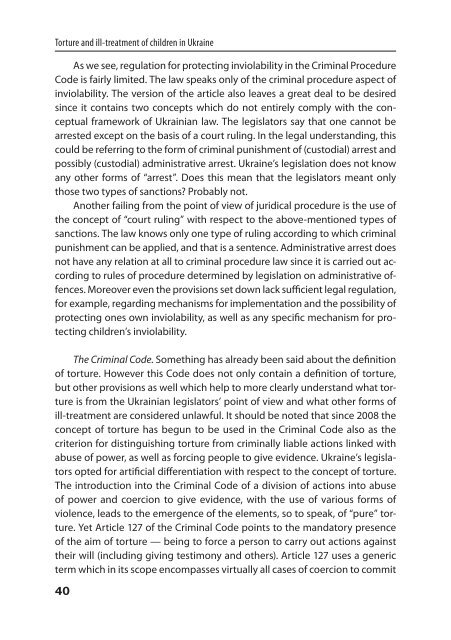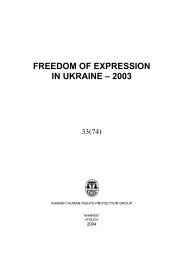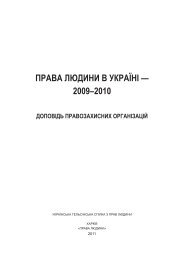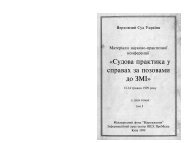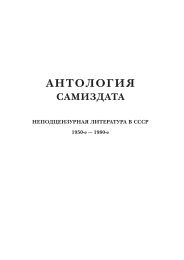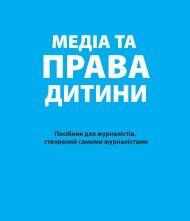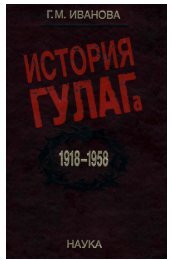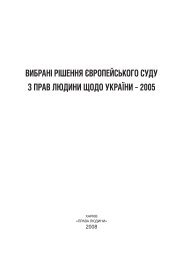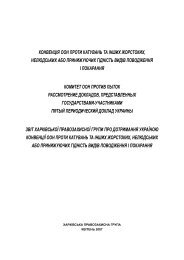TORTURE AND ILL-TREATMENT OF CHILDREN IN UKRAINE
TORTURE AND ILL-TREATMENT OF CHILDREN IN UKRAINE
TORTURE AND ILL-TREATMENT OF CHILDREN IN UKRAINE
- No tags were found...
You also want an ePaper? Increase the reach of your titles
YUMPU automatically turns print PDFs into web optimized ePapers that Google loves.
Torture and ill-treatment of children in UkraineAs we see, regulation for protecting inviolability in the Criminal ProcedureCode is fairly limited. The law speaks only of the criminal procedure aspect ofinviolability. The version of the article also leaves a great deal to be desiredsince it contains two concepts which do not entirely comply with the conceptualframework of Ukrainian law. The legislators say that one cannot bearrested except on the basis of a court ruling. In the legal understanding, thiscould be referring to the form of criminal punishment of (custodial) arrest andpossibly (custodial) administrative arrest. Ukraine’s legislation does not knowany other forms of “arrest”. Does this mean that the legislators meant onlythose two types of sanctions? Probably not.Another failing from the point of view of juridical procedure is the use ofthe concept of “court ruling” with respect to the above-mentioned types ofsanctions. The law knows only one type of ruling according to which criminalpunishment can be applied, and that is a sentence. Administrative arrest doesnot have any relation at all to criminal procedure law since it is carried out accordingto rules of procedure determined by legislation on administrative offences.Moreover even the provisions set down lack sufficient legal regulation,for example, regarding mechanisms for implementation and the possibility ofprotecting ones own inviolability, as well as any specific mechanism for protectingchildren’s inviolability.The Criminal Code. Something has already been said about the definitionof torture. However this Code does not only contain a definition of torture,but other provisions as well which help to more clearly understand what tortureis from the Ukrainian legislators’ point of view and what other forms ofill-treatment are considered unlawful. It should be noted that since 2008 theconcept of torture has begun to be used in the Criminal Code also as thecriterion for distinguishing torture from criminally liable actions linked withabuse of power, as well as forcing people to give evidence. Ukraine’s legislatorsopted for artificial differentiation with respect to the concept of torture.The introduction into the Criminal Code of a division of actions into abuseof power and coercion to give evidence, with the use of various forms ofviolence, leads to the emergence of the elements, so to speak, of “pure” torture.Yet Article 127 of the Criminal Code points to the mandatory presenceof the aim of torture — being to force a person to carry out actions againsttheir will (including giving testimony and others). Article 127 uses a genericterm which in its scope encompasses virtually all cases of coercion to commit40


